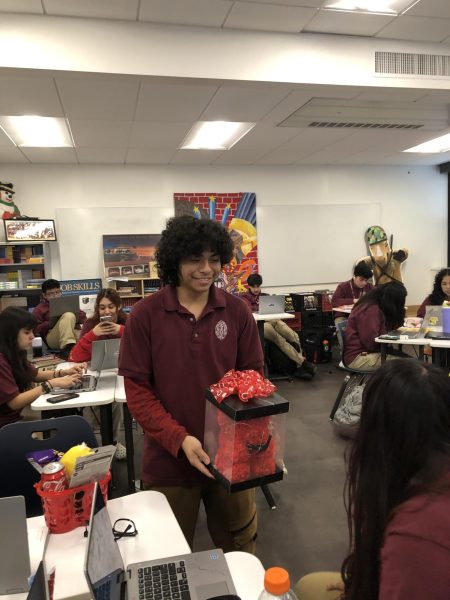Career profile: So, you want to be a forensic scientist
May 10, 2018
Career profile: So you want to be a Forensic Scientist
A Forensic Scientist helps analyze and compare evidence from victims or suspects in objects or also locations. They do this by DNA, body fluids, or hair mostly anything they find in the crime scene that looks like it might help. This is evidence for judges, juries and attorneys.You usually find this people working in labs or police stations and as well in court.
| Who can do this? | •40 hours a week
•A Lot of lab work •Testify in court •Serving justice |
| What does it take? | Masters in forensic science or even higher for better chances like a PhD |
| Where can you get it? | •Loyola University Chicago
•Quincy University •Northwestern University •University of Illinois at chicago |
| When can they do it? | •4 years of college for you masters in Forensic Science
•8 years of school for Doctorate degree for a PhD or MD |
| Why you should do it? | •Serving justice
•Work doesn’t follow you back home leave work at work •Challenging and rewarding •Well equipped labatory |
They’re 11 schools in the area of Illinois that offer Forensic Science and Technology program. The least expensive is tuition is in University of Illinois at Chicago for $10,584 yearly. Or also I can attend to Morton College for two years for my associates and transfer on to University of Illinois at Chicago to get my masters in forensic science then I get to decide later on if I want a higher degree.
I interviewed Barbara Lee she examines on broken glass parts from the crime scenes.
Questions & Answers
-
Tell me about your job. Is what you do different in any way from what others in your occupation do?
My job is to examine broken glass like windows or any glass parts found in a crime scene. But there are many different kinds of scientist who examine on other things like DNA, firearms, and handwriting.
-
Can you tell me about your background and how you got into this field?
I found out I wanted to be a forensic scientist as a kid in high school because I love science and to know I will be solving crime as well was great. So right after I finished high school I went straight to college for my masters in forensic science.
-
What personal characteristics are required for someone to be successful in your job?
Someone who is detailed oriented in order to make sure test are accurate and also great communicator to speak to a judge confidently about your findings.
-
What other jobs could you do with the skills you have gained in this field?
All the chemistry and science related jobs like environmental, pharmaceutical, manufacturing.
-
What do you think the future holds for people in your occupation?
Technology is always improving so this helps us get our job done faster.
-
What are the biggest challenges in your job? Testifying in court can be difficult and stressing because you are going to have to talk to a judge.
-
Are there many opportunities in your field? What should people do to get started?
You can improve your chances by getting a higher degree or should get as much experience as you can so you have something to put on your resume.
- How much do you enjoy your job and are you happy with where you are now?
Yes there can be dislikes like sometimes the items you’re inspecting can have a smell or insects crawling on the samples other then that I do like my job I like where i’m at since I always wanted to do this since high school and I get to feel good about myself after justice has been served.
- Do you have any tips for people who want to get started?
It can be disturbing when you know the items you are examining come from a horrible crime. Also the most difficult part of becoming a forensic scientist is talking to a judge you have to know what youre talking about give good answers that are understandable to the judge and the hard part is you never know what’s going to be asked in a courtroom.


